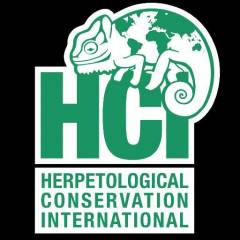House Gecko
If you liked this article, then LIKE this article here!
- Common Group: GECKOS
- Common Name: House Gecko, Mediterranean House Gecko, Pacific House Gecko, Asian House Gecko
- Scientific Name: Hemidactylus sp.
- Distribution: Southeast Asia
- Size: 4" - 6"
Natural habitat
This is an arboreal lizard found in the moist tropics of Asia. There are many different species of gecko that are grouped into the common name of "house gecko", but fortunately the care remains the same. These geckos thrive under a wide range of conditions, but prefer semi tropical habitats with high humidity. Due to their versatility, these geckos are often considered a parasitic species in places such as Florida, California, and Hawaii, where they have established invasive colonies.
Behavior
A shy, skittish gecko that does not tolerate frequent handling. Handling that is too rough can often tear the delicate skin of the gecko, and it will readily drop its tail when it feels threatened. These geckos are nocturnal, and tend to spend most of the day hiding in foliage. Many different species of frog, lizard, snake, mammal, and bird prey on this species, and it is recommended to house them only with animals that are not large enough to prey upon the geckos.
Captive environment
Due to their small adult size, these geckos do not need a terribly large cage - for just one or two, a small 12 x 12 x 18 sized glass enclosure will work, or for a larger group or multi species vivarium, bigger is better.
A vivarium with live plants is the most ideal way to house these geckos. The live plants allow for an increase in relative humidity, and provide many places for the geckos to hide. Use of cork rounds and cork flats also provides excellent places for the geckos to hide and are visually appealing.
These geckos require a bowl of fresh, clean water daily, as well as regular misting. The misting can be accomplished either through a conventional hand spray bottle or through use of a fogging system.
Because these geckos are from a tropical climate, it is recommended to provide them with a basking spot between 85 and 90 degrees. In a small tank, this can be accomplished with a 50 watt basking light. It is also recommended to provide these geckos with supplemental UVB lighting to allow them to process vitamin D3 and calcium properly.
Temperature
These geckos are from a tropical climate, and thrive best with an ambient temperature in the low 80s. A basking spot of about 90 degrees is recommended, as long as there is a cool area that gets below 80. A thermometer is highly recommended to track cage temperatures.
Humidity
This species requires moderate to high levels of humidity. Use of a hygrometer is recommended to track cage humidity and ensure these geckos do not get too dry.
Water requirements
A small water bowl is recommended to supply a constant source of water in addition to regular misting.
Nutritional requirements
These geckos eat a variety of small insects, including crickets, mealworms, small roaches, and flying insects such as moths and fruit flies. All prey items should be dusted in a high quality calcium supplement.

